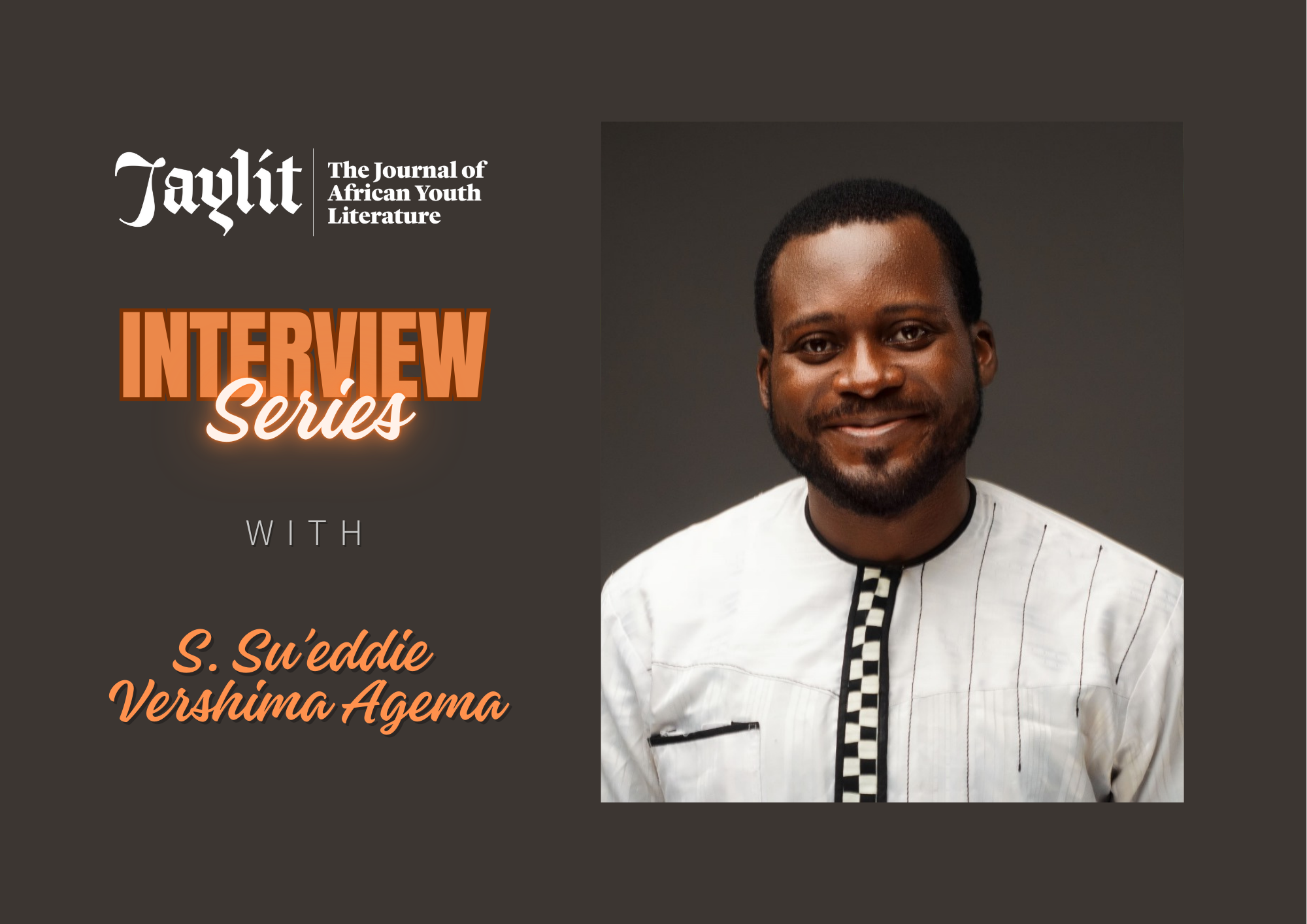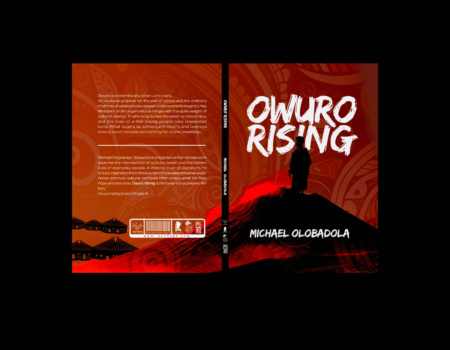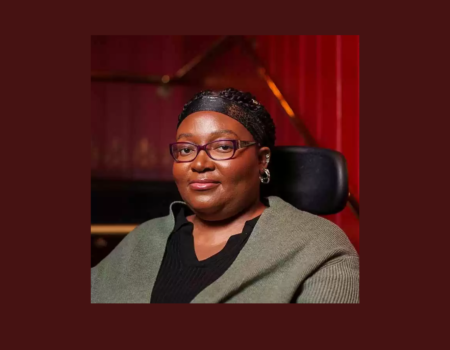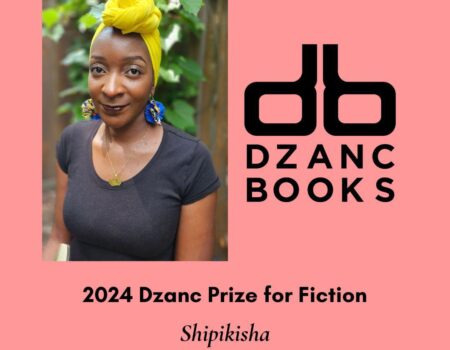Su’ur E. Su’eddie-Vershima Agema is a multiple-award-winning writer, editor, cultural advocate, and development practitioner. Among other prizes across genres, he has won the Association of Nigerian Authors Poetry Prize (2014 & 2022), the Mandela Day Short Story Prize 2016 and was a finalist for the Nigeria Prize for Literature (2022), Africa’s most prestigious literature prize worth $100,000. He has also been nominated for prizes such as the SDGs Short Story Award 2021 by the Economic Commission for Africa (2021); the Wole Soyinka Prize for African Literature (2018), the Abubakar Gimba Prize for Short Stories 2022, Saraba/PEN Nigeria Poetry Prize (2012), and the Association of Nigerian Authors Prize for Prose Fiction (2014).
He heads SEVHAGE Publishing and its sister charity, SEVHAGE Literary and Development Initiative, while convening the annual Benue Book and Arts [International] Festival. He is also the Managing Editor of the notable poetry collective, Konya Shamsrumi. He also sits on the editorial team of Cons-cio Magazine, a global literary magazine produced by Authorpedia/Words Rhyme & Rhythm Publishers. Agema also convenes and administers the SEVHAGE Literary Prizes, a collection of different prizes across the various genres.
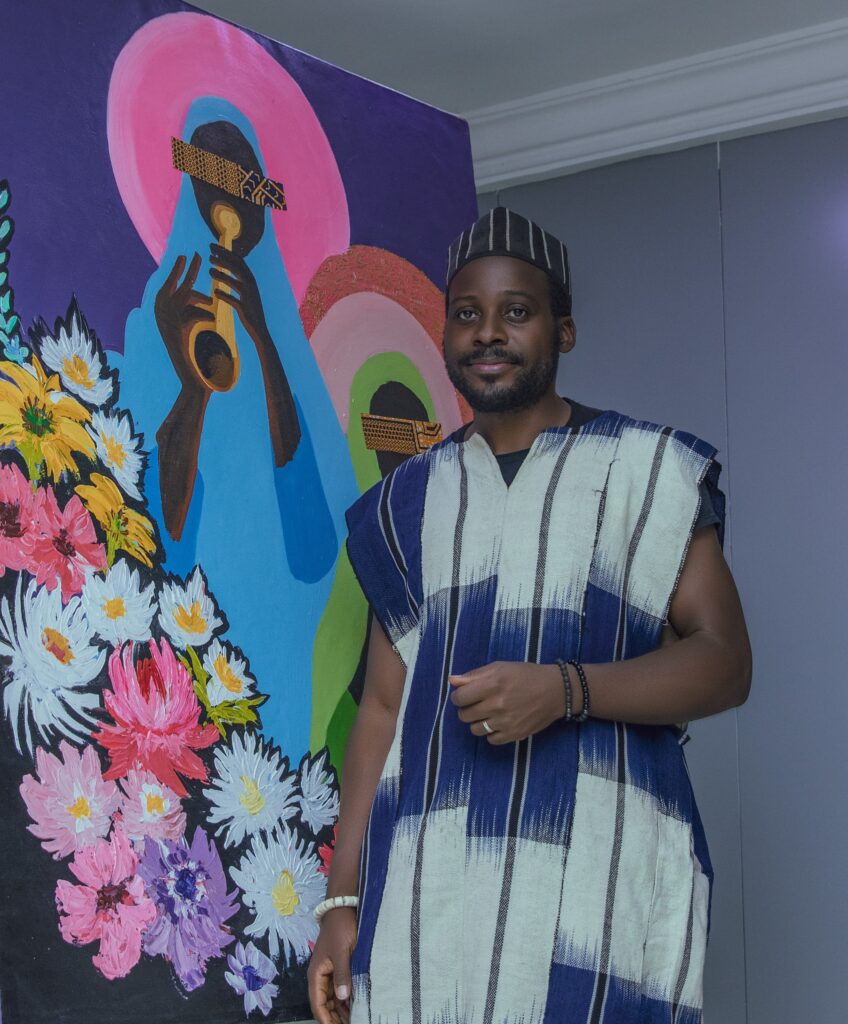
Su’eddie was previously the Black History Month/Project Curator and co-founder/president of African Writers [Society] at the University of Sussex, where he earned an MA with distinction in International Education and Development as a Chevening Scholar. He was a 2022 David C. Pollock Scholar of the International Families in Global Transition.
His books include the poetry collections, Memory and the Call of Waters, Home Equals Holes: Tale of an Exile, Bring Our Casket Home: Tales One Shouldn’t Tell; the short story collection, The Bottom of Another Tale; the children’s book, Once Upon a Village Tale; and A Maze of Fading Touches (a work of fiction in progress).
In this interview, Su’eddie talks Ibrahim Babátúndé Ibrahim through his journey as a writer, editor, cultural advocate, development practitioner, among other things, touching on the power of arts, influence of prizes, building for the future, etc. Do come along for fun and insightful read!
~
IBRAHIM
It’s good to have you with us, Su’eddie. I purred over your profile, nodding at the many hats and accolades I found familiar, and being pleasantly surprised at the many others I’m just learning for the first time. I had meant to ask you how you juggle everything, but now seeing that you do even more than I thought, I’m genuinely confused about how you handle all your roles.
SU’EDDIE
Haha, it is nice to have this conversation with you, Ibrahim. I remember seeing a picture of you on Instagram and Facebook a short while ago, working on the train during your commute. You mentioned how we always have to be on the go. I totally agree with you. We don’t have the gift of forever, so it’s up to us to make the most of the time we have, right? I’m trying to learn to slow down a bit, especially with family responsibilities, but it gets frustrating when I don’t do all I think I can. In the end, we take each day as it comes, adding what we can, hoping it makes a difference. When God finally calls us home, I hope we return empty, having done all we could in the time we were blessed with.
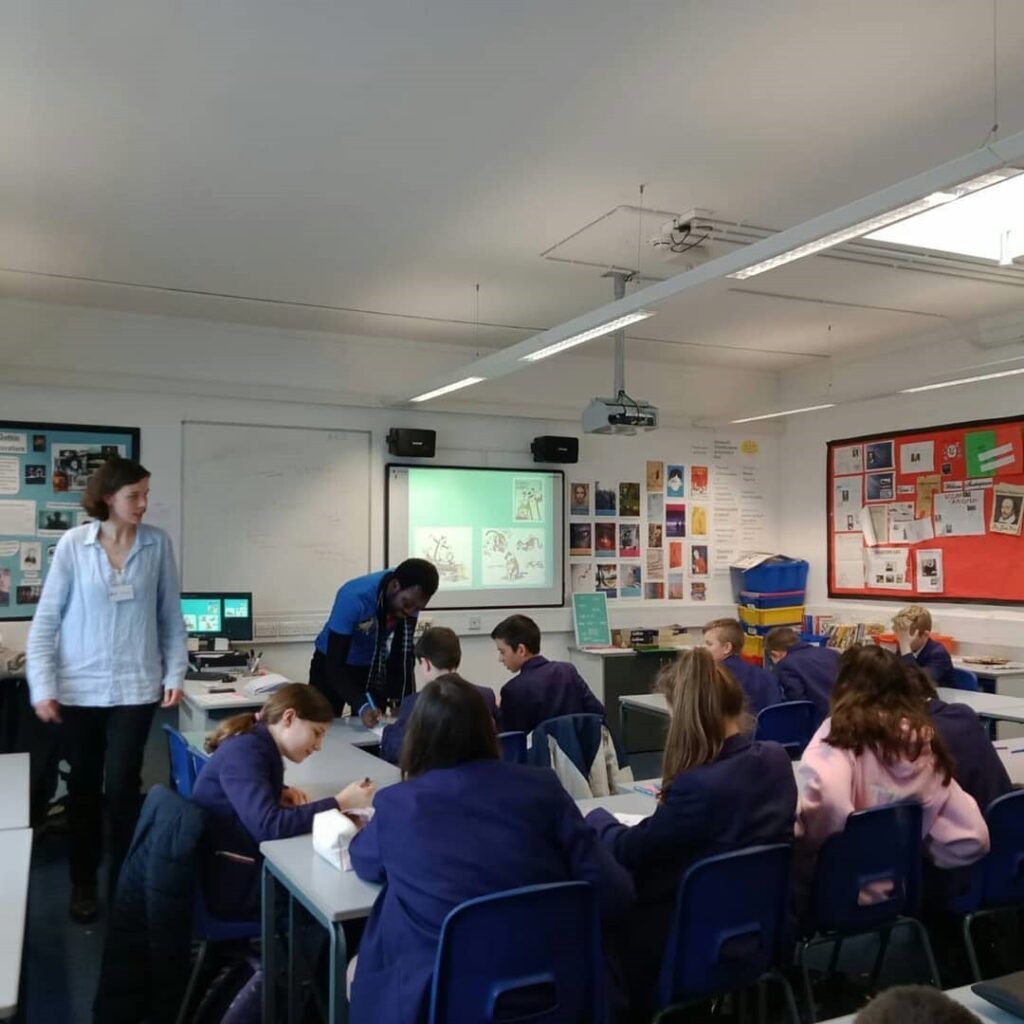
IBRAHIM
It’s easy to see how passionate you are about writing. What about writing has made you dedicate so much (if not all) of yourself to it?
SU’EDDIE
It’s beyond writing, my brother. It’s about art, education, development, and the mind. The transformative power of art and books is phenomenal and often overlooked. When we dedicate ourselves to it, it opens doors in ways we can’t imagine. Just think of works like Things Fall Apart and the impact it has had on people’s lives. Or the movie Black Panther and its cultural significance. These examples showcase the ideological power of the written word, of art, in transforming people and places in profound ways.
I’ve seen firsthand how writing can change lives for the better. It can elevate a person’s mind, give them hope, and bring opportunities. Through writing, I’ve connected with some of the finest people, created numerous projects, and witnessed transformative stories like those of Romeo Oriogun and Adedayo Agarau. Their lives are now legendary, but do you know their back story? Find out.
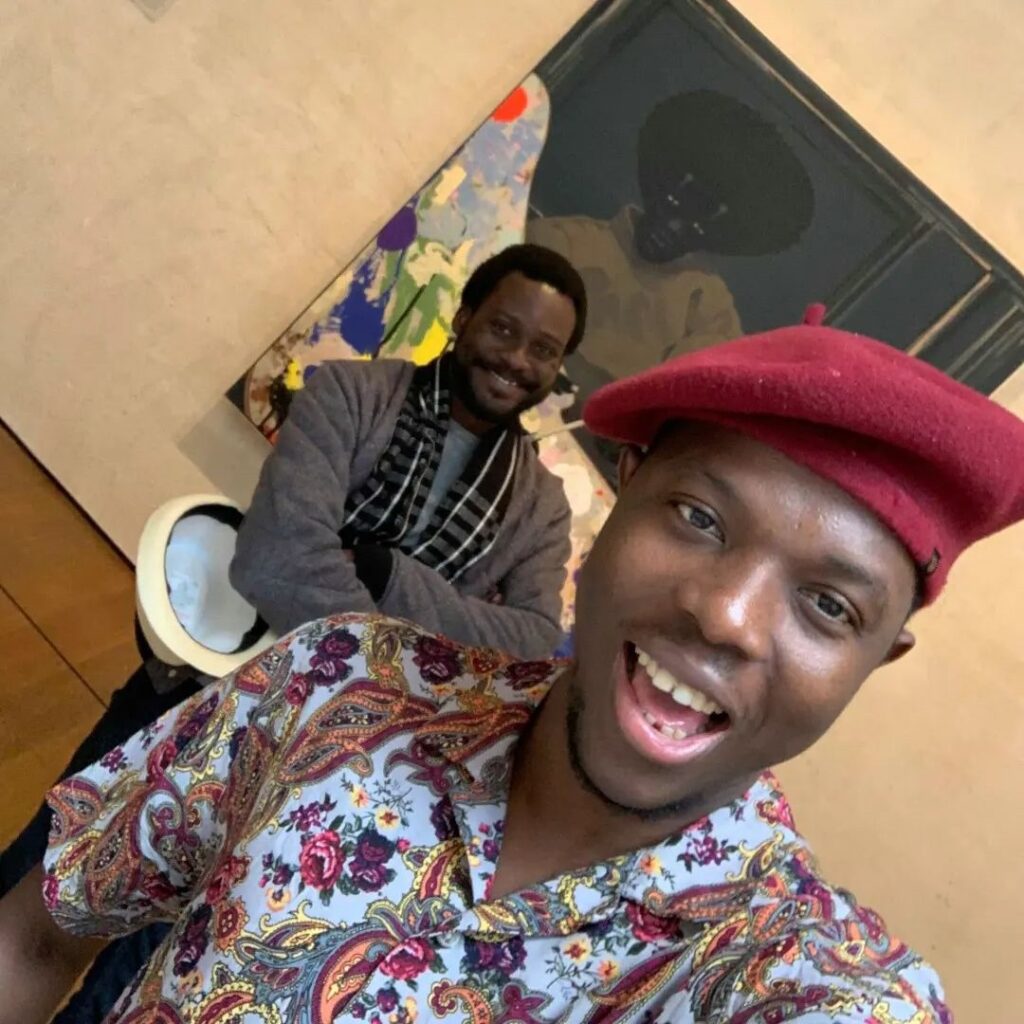
This craft demands dedication and often requires juggling multiple roles to sustain oneself. Despite the challenges, it holds a power that takes us to amazing levels if we persist.
Importantly, I’m passionate about amplifying more voices to help transform other lives. To summarise my ramblings and answer you directly, my dedication to art – whether doing it or promoting it – stems from understanding its potential to create positive change and the desire to keep going, even when the journey isn’t easy. This, I believe, is what drives my friends like Kukogho Iruesiri Samson, Servio Gbadamosi, Vic’Adex, Loveth Liberty, Raphael Ibanga, Bash Amuneni, Iquo DianaAbasi, Amara Chimeka, Salamatu Sule, and of course, Dike Chukwumerije.
IBRAHIM
How did it begin for you, writing I mean?
SU’EDDIE
Ah, the origin story! My early exposure to literature, thanks to my parents, played a significant role in sparking my interest in writing. But it was more than that. It took me some time to learn how to read, but before that, my siblings—Taver, Gabriel, Sever, Ngodoo, Mlumun, and Theodora—were my first storytellers. They drew comics and made toy men, weaving incomplete tales that fueled my imagination. I started drawing stick men and creating my own stories, initially just for myself. I would draw my stuff on all the spare pages of my mother’s diaries. Wetin consign me? (laughs)
When I eventually began reading, my mother introduced me to the African Writers Series. I vividly remember reading The Only Son by John Munonye and being transported into its world. The stories in that series were so captivating that I knew I wanted to do the same. I also remember reading those stories in the Evans readers – Ali and Simbi, Edet, etc; the ones in Intensive English, then the occasional novels we came across like Chike and the River, The Drummer Boy, An African Night’s Entertainment. Those things inspired me without end. Additionally, my father and other relatives shared folktales and songs from our culture, which enriched my creative foundation. I remember watching our local Kwagh Hir theatre as a child and a memorable performance by a man, a legend called Tar Ukoh. I also owe a lot to Mr Charles Ayede, my second father, who taught me so much and is greatly responsible for the man I have become.
By secondary school, I was drawing comics, mainly with my friends, Tardoo Ayua, and later, Obinna Okeke. My English teacher, Mr Emmanuel Mbatsavde inspired my writing at some point, giving me prompts which I would flesh into stories. So, I had his compositions and my comics going. I vaguely remember experimenting with poems and a play too. After secondary school, there was barely time to draw my stories and so I stuck to the written word. I should clarify here that the things I wrote then were whatever they were o…not much. I can vouch for my comics, but those other writings—except the English compositions—had their own wahala. I owe a good part of my improved writing to people like my elder friends who have turned family, Professors Hyginus Ekwuazi and Niyi Osundare, Chuma Nwokolo, then reading Chimamanda Adichie, Carlos Ruiz Zafon, and Helon Habila. I also had my brothers Taver and Sever, Sam Ogabidu, Andrew Bula, Joshua Agbo, Debbie Iorliam, and a few friends who helped me with constructive criticism that kept me going towards the right light. My uni tutors from Professors Tsenongu, Maria Ajima, Leticia Nyitse, to Dr Andrew Aba did their part in moulding me too. I could go on and on but let’s leave it there for now.
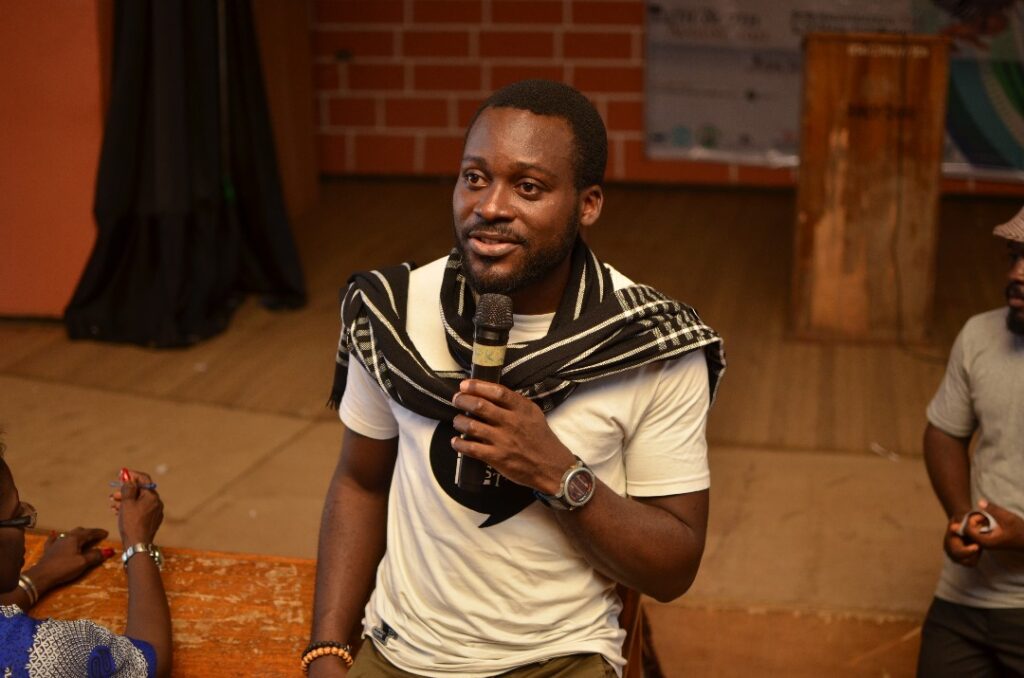
IBRAHIM
It’s no surprise then that you’ve published work across several genres of literature. You have poetry collections, a short story collection, a children’s book, and a novel in progress. Which would you say is your most loved niche?
SU’EDDIE
I’m not sure I have a most-loved niche. I’m a different person when I’m in the element of writing or interacting with any medium, and I try to let the flow wash through me when I’m in that zone. At this moment, I’m doing more children’s writing and reading because I’m actively parenting and need to engage with my children. But that’s simply why.
In terms of which genre has blessed me the most, I’d say it’s poetry. Poetry is where I express most of my vulnerabilities. Most of my accolades have come through poetry, including two Association of Nigerian Authors prizes and several shortlists, like the NLNG Nigeria Prize for Literature (famously alongside my brothers, Romeo Oriogun and Saddiq Dzukogi), the Wole Soyinka Prize for Literature (alongside my near-twin, Servio Gbadamosi), and the PEN Nigeria/Saraba Prize. Poetry has opened many doors for me, leading to various platforms for performances and readings. Interestingly, I find it easier to perform or read my prose, yet it’s poetry that I’ve published more extensively. Perhaps because poetry is deeply personal, it’s more rewarding to share it with the world in the written word than in performance. This might explain why I have three published collections!
IBRAHIM
I’ve heard many writers say they never experience writer’s block. I’ve also heard others say they’ve perfected ways of overcoming it. What’s your experience/relationship with it, and how do you handle it?
SU’EDDIE
I don’t really believe in writer’s block. I think sometimes we’re just tired and need to reboot. Sometimes, our bodies are tired of being mechanical too, and want to experience things—to be in nature and away from screens or those million things that modernity has forced upon us. We might need to read more, experience life more, or to paraphrase Nick Makoha, “You have writer’s block because you have not given yourself permission.” It was a key message in a workshop he conducted in Oxford, which I attended and wrote about (here).
When I’m tired, I push on and give my best. If nothing happens, I leave the screen and refresh my mind. I try to read, watch movies, be with loved ones, or do other things to recharge. Eventually, I return and write whatever comes to mind, even if it’s rubbish because there’s always room for editing.
IBRAHIM
How about good old rejection? The one companion no writer can deny… (laughs)
SU’EDDIE
Rejection is part of the journey. I’ve learned not to let rejections affect me, knowing how the publishing and selection process works. Often, a work is rejected not because it’s bad but because the outlet or competition has limited slots. Some other times, it’s simply that your work doesn’t align with the selector’s preferences at that period.
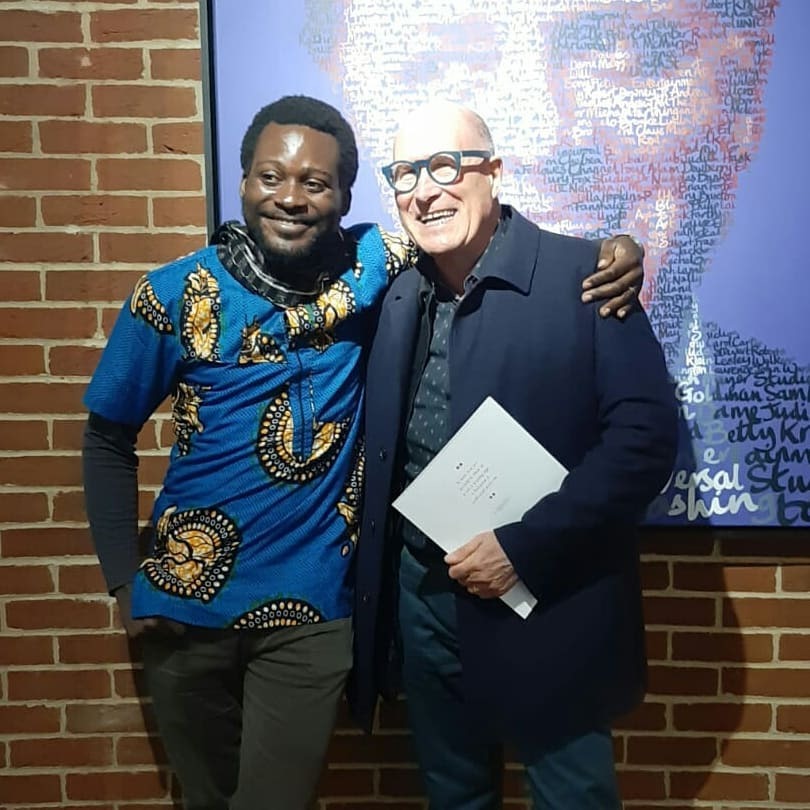
Funny story, I submitted a poem to a platform, and they rejected it. A year later, after being a finalist for the Nigeria Prize for Literature and winning the ANA Prize for Poetry, I received requests for interviews and solicited poems, including from that same platform. I sent them the same poem they had previously refused, and they were in ‘awe’ of “this beautiful poem” which they gratefully published! The poem hadn’t changed at all.
Rejections don’t hurt me anymore. Instead, I ensure my pieces are the best they can be, reviewed by respected peers like Deborah Oluniran-Adeniyi, Amara Chimeka, Debbie Sesugh Iorliam, Aondosoo Labe, Nana Sule, Halima Aliyu, and others. Once satisfied, I rest easy. If a magazine says no, I smile, knowing it’s their loss.
When feedback highlights a flaw, I’m open to fixing it.
I also try to create opportunities for other writers to face fewer rejections. On rare occasions when we have to reject works, it’s painful, but we try to explain why to help the writer improve or understand our decision.
IBRAHIM
What’s your process or ritual like—the process of making a book, a story, or a poem?
SU’EDDIE
I don’t have a strict writing regimen. Different works—poems, fiction, non-fiction, or play scripts—come to me in various forms. Sometimes, I start writing in my head, juggling scenarios, and then put it to paper. Often, the words on paper differ from my original thoughts because, as Hyginus Ekwuazi says, the road from the head to the hand is long. Other times, I write words as they come.
Regardless of the approach, I always take time to reread, rework, and re-edit. I often have someone else review my work. I read my poems out loud to feel their rhythm and impact. I seek feedback from an audience and revise accordingly. After letting the work rest, I revisit it to see if I’m still satisfied. I continue this process until either I or the work gets tired, and then I let it go. This aligns with Ekwuazi’s belief that no work of art is ever truly complete; at some point, you just let it be.
IBRAHIM
What’s the most prominent theme in your work? What cause(s) are you most passionate about?
SU’EDDIE
There are several prominent themes in my work—memory [individual and communal], loss, love, nationhood, tradition, orality, displacement, migration, family… The list is extensive. I try to capture moments, thoughts, and emotions. My poetry often responds to situations, hoping to convey a message that touches someone somewhere and sparks change. Do I dare hope for so much? I am passionate about these themes, speaking our truth, and showcasing our lives as a people.
IBRAHIM
You won the Association of Nigerian Authors Poetry Prize (twice), the Mandela Day Short Story Prize, and was a finalist for the Nigeria Prize for Literature (2022), not to mention many other shortlists and nominations. How do you think these successes impact your work and growth as a writer?
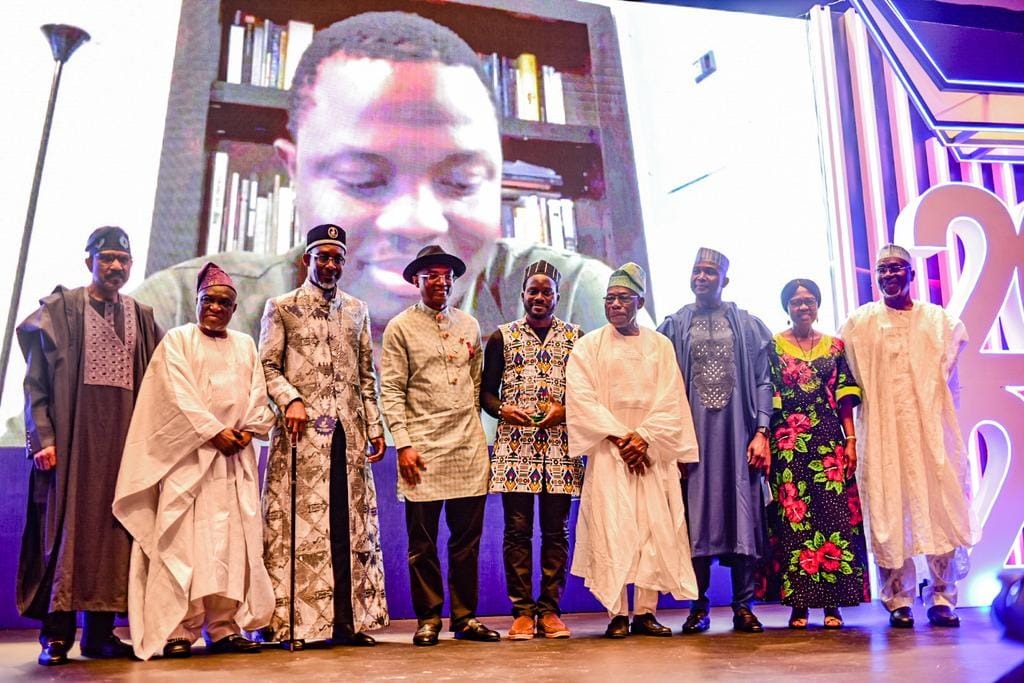
SU’EDDIE
Prizes generally give one a good feeling. It’s always nice to receive a nomination here or a prize there. They affirm that you’re doing something right. However, I’ve learned not to rely solely on prizes or institutional affirmations to determine my worth. Each prize places a responsibility on me to work harder. Ultimately, a literary prize isn’t the end but the starting point, requiring continuous effort to remain relevant in the hearts of readers, which is the true prize for any writer.
IBRAHIM
You’ve in turn been building and giving back, especially with the SEVHAGE Prizes and the Benue Book and Arts International Festival. As one of the few indigenous people building infrastructure for young African writers, what major things would you say are the greatest impediments? Funding, yes, but I want to know the other things too.
SU’EDDIE
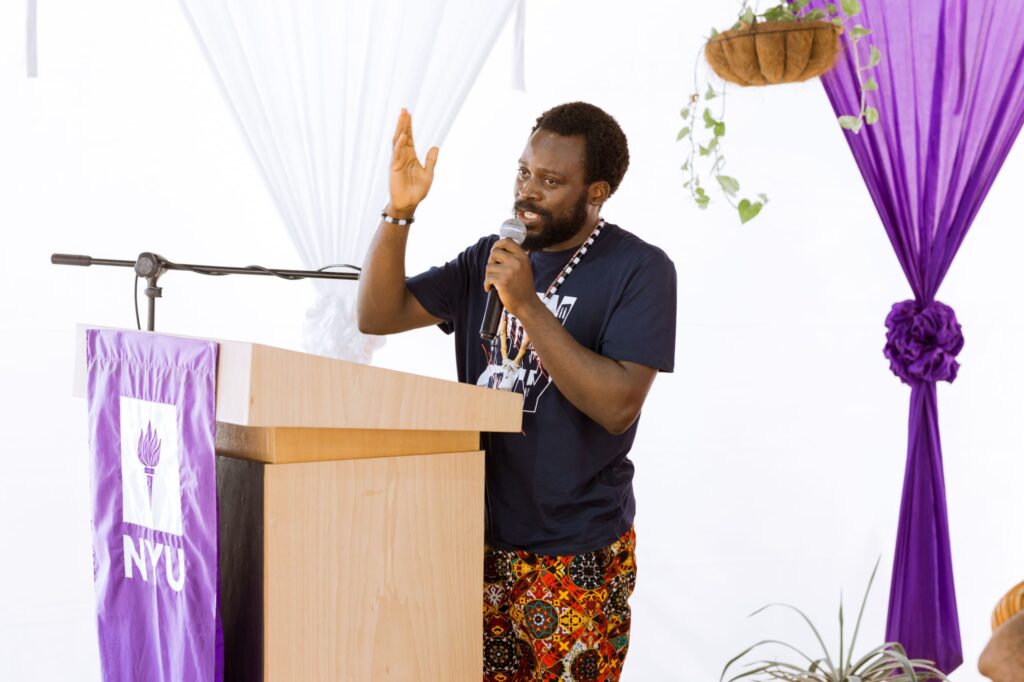
I don’t often cite funding as a major impediment for art administration, not because it isn’t an issue, but because I believe it doesn’t take money alone to do amazing work. Many people claim that money is a barrier and wait for a huge sum before starting anything. A maternal uncle, Jighjigh, once told me that if anyone says they need ‘something’ before they do ‘anything,’ they are prepared to do nothing. We can do a lot with the little we have and grow while seeking funding. In my experience, if one remains committed and seeks opportunities long enough, doors open and one finds ways to get partnerships and funds to fuel one’s projects.
So, what are the greatest impediments? Lack of planning and proper strategy, unconstructive criticism, and eventually, tiredness. If we plan well and collaborate, we can achieve much more. Constructive criticism and support, both in private and public, can encourage and sustain efforts. When these elements are missing, and efforts go unappreciated, it’s easy to get tired.
IBRAHIM
So, the thing about the many hats, again. I know I’ve asked before, but let me be more specific. You’re an active builder on the literary scene, a writer yourself, and you definitely must have a life outside of all that. How do you balance it all so that one does not suffer for the other?
SU’EDDIE
I have great support from people around me, including my wife Agatha, my mum Mrs Chris Ayede-Agema, Mrs. Marie Aduro, Nathaniel and Jennifer Aduro, Tine Agernor, Otene Ogwuche, Gabriel Agema, Servio Gbadamosi, Kukogho Iruesiri Samson, Amara Chimeka, and my team at SEVHAGE and KSR— including the respected peers I mentioned above, Elizabeth KJ Umoru, Oko Owoicho, Jolaadura Ademola, Adakole Okopi Stephen, Mathew Daniel, Iveren Ayede, Richard Ali, Hannah Omokafe, and Torkwase Igbana. See ehn, it is a long list but let me not bore anyone reading. These angels help me manage the various aspects of my life and ensure I can balance my literary activities with personal responsibilities. It’s a constant juggling act, but it becomes manageable with such a supportive network.
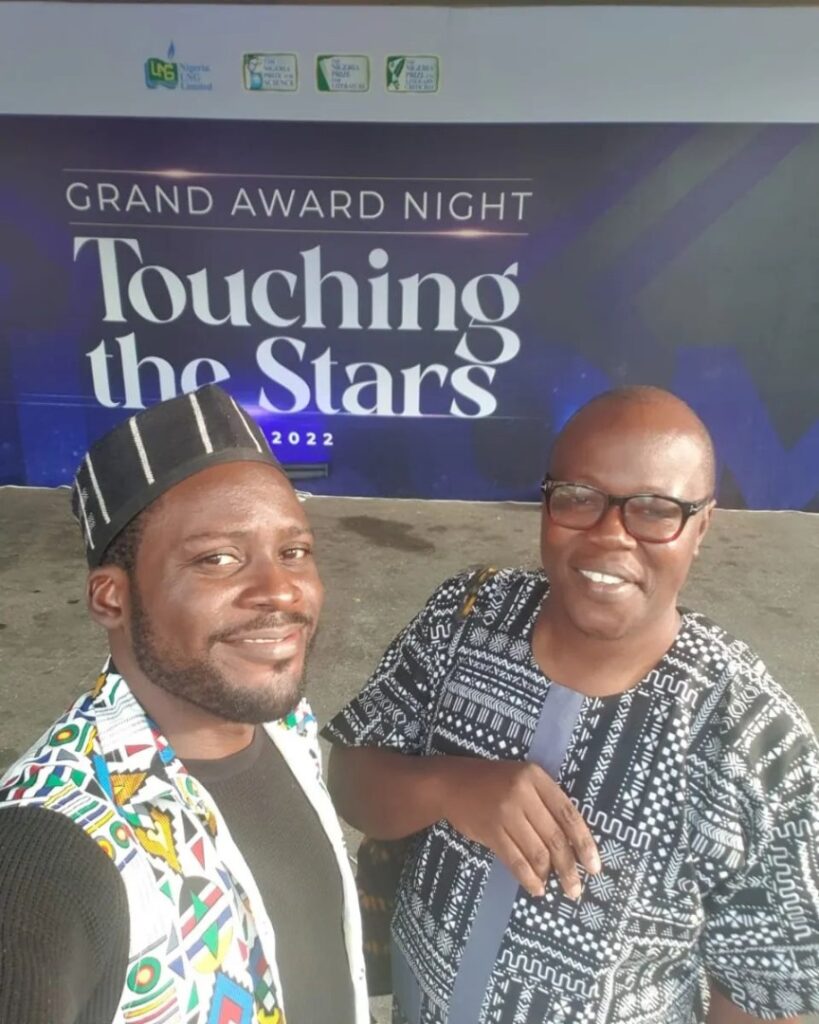
IBRAHIM
Many say service to literature is a labour of love, especially in African writing, because of how underfunded everything is. What motivates you?
SU’EDDIE
I’ve been actively involved in literary administration and supporting the arts since about 2009. Some days, it gets tiring, but seeing how some lives change because of modest events or initiatives keeps me going. For example, a lady who attended one of our Benue Book and Arts/SEVHAGE International Festivals told us much later that she was on the verge of suicide, and the event gave her a new lease on life. Such stories inspire me to continue.
True talk, one has to do many things to keep body and soul together while engaging in the art business. The power of art can take us to amazing levels if we persist. I’m interested in ensuring that more voices are heard so they can also transform other lives. This understanding drives my dedication to the arts.
IBRAHIM
What’s your dream for African literature? If all the impediments were out of the way, what new things would you be embarking on?
SU’EDDIE
My dream for African literature includes increased visibility for writers across various regions and greater knowledge of all regions, especially Lusophone writers who often go unseen. I envision a more unified ecosystem where we share our works without barriers. I’d love to see more inter-country and international festivals, anthologies, and similar initiatives.
In this dream, writers would receive better remuneration, allowing them to live dignified lives through their craft. They would live their truth, not just talk about it. It’s disheartening when writers don’t practise what they preach, but that’s life, no?
On another note, I dream of a situation where African borders are more open, allowing us to travel around the continent easily without hassle. Imagine having a visa that lets us travel across Africa or fly to a Francophone country without detouring through Europe first. Better transportation and interconnected networks for creatives would be transformative. These are some of the challenges we face as publishers, literary promoters, and creatives.
Finally, in my dream, we would be confident in ourselves, not settling for mediocrity but striving for excellence.
IBRAHIM
You’ve also had great success as an academic, winning the coveted Chevening Scholarship, as well as the David C. Pollock Scholarship. Please share some insights into that.
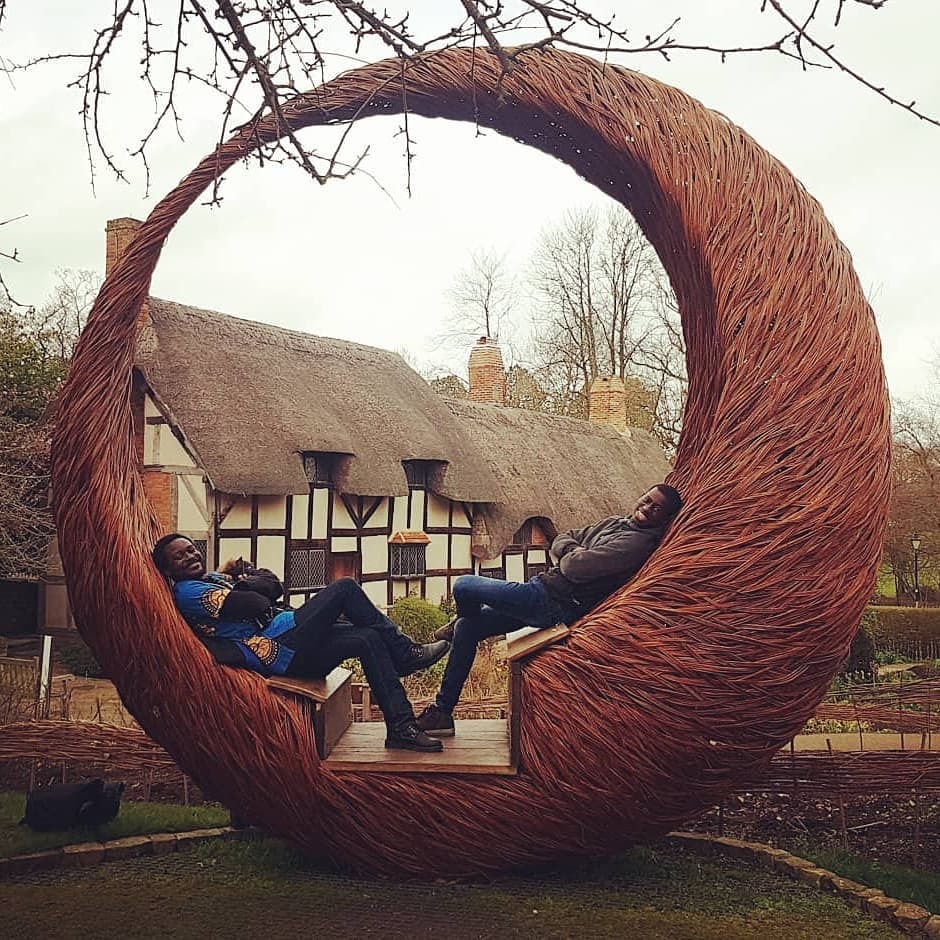
SU’EDDIE
I built on my degree in English and a Master’s in Geography Development Studies from Benue State University, Makurdi. I have worked across levels in academia, including supervising projects and various other responsibilities. I’ve edited and supported the editing of several journals and have hands-on experience in literature, education, WASH, and development in general. I have been part of teams that consulted or executed work for USAID and the Water Supply and Sanitation Collaborative Council (WSSCC) (which has transformed into the Sanitation and Hygiene Fund). I owe several successes on the development front to Mrs Jeiyol Elizabeth who has remained a kind friend.
Additionally, I have held various literary administrative and educational roles, culminating in my position as the Chairman of the Association of Nigerian Authors (Benue State Chapter). All these experiences contributed to my application for the Chevening Scholarship, which values both leadership and academic excellence. I received the scholarship to study International Education and Development at the University of Sussex, and I made my sponsors proud by earning a distinction!
Later, I was selected as a David C. Pollock Scholar for the Families in Global Transition (FIGT) group. FIGT is a fantastic forum for globally mobile individuals, families, and those working with them. It promotes cross-sector connections for sharing research and developing best practices to support the growth, success, and well-being of people crossing cultures worldwide. Being a scholar, and now a Fellow of the group, opened my eyes to many aspects of migration and being in motion, areas of great interest to me, considering most of my life has been lived on the move.
IBRAHIM
At the University of Sussex, you served as the Black History Month project curator. You also co-founded and was president of a society for African Writers over there. Knowing that you’ve been spending some more time in the United Kingdom lately, are there new projects to look forward to?
SU’EDDIE
Absolutely, there are exciting projects in the works. We are currently focused on the SEVHAGE Prizes, which this year feature some notable awards. We have the Eugenia Abu/SEVHAGE International Prize for Creative Non-Fiction, offering One Million Naira (₦1,000,000) and open to writers worldwide. Then there are the Africa-specific prizes: the K & L Prize for Fiction, worth six hundred thousand naira (₦600,000), and the E. E. Sule/SEVHAGE Prize for African Literary Criticism, worth two hundred and eighty-five thousand naira (₦285,000). We are getting set to announce a poetry competition (which will be worth about ₦300,000) for young authors aged eighteen and below, in memory of Vivian Ihaza, in partnership with Jumoke Verissimo, who was a bosom friend of the former.
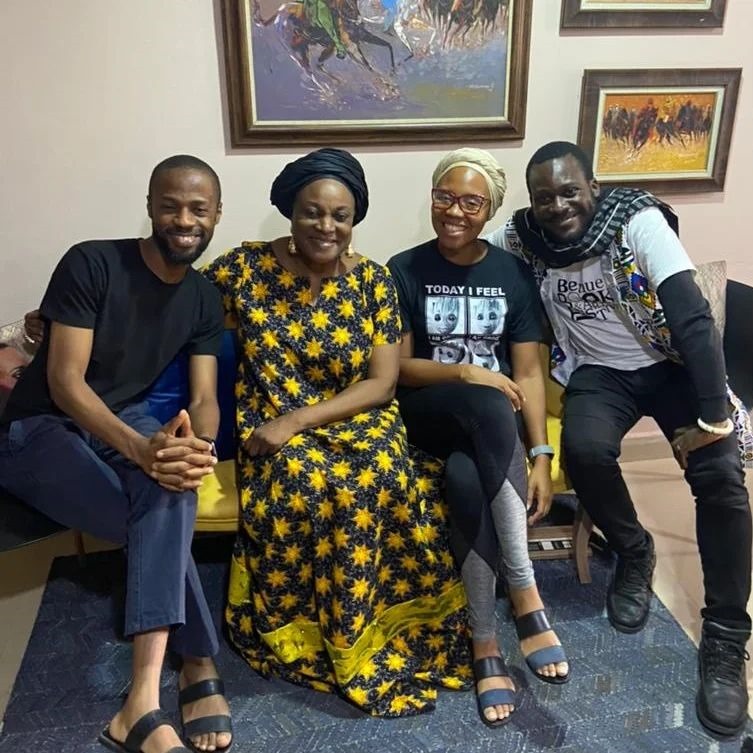
Once these are concluded, components of the winning pieces and selected works will be part of an exhibition we are curating in the United Kingdom, set for Nottingham in December. Additionally, we are planning more events to bring our artists together, showcase their talents, and strengthen our community.
IBRAHIM
If you weren’t doing any of the things you do now, in an alternate world, what other things could you have spent your life on? Surprise us please (laughs)
SU’EDDIE
(Laughs) Oh, surprise you so that you will use it against me one day, abi? I know what is in your mind, Ibrahim. It is you who will be the unnerded stripper without glasses in an alternate world jare. For me, I would probably be a priest or a counsellor.
IBRAHIM
(Laughs) What is something you would tell a young you who is just starting out as a writer?
SU’EDDIE
Well, this is more to everyone: Be humble and always have faith in yourself. Keep your art alive but importantly, find alternate income sources to support yourself while you wait for your big break. Having a community helps a lot so don’t be an island. On some days when the pressures of the craft hit you hard or you feel down, it just might be your community that will lift you up. As Sefi Attah says, everything good will come. But even more than these, I think we are all given our gifts for a reason. Find out the reason for yours and don’t lose sight of it. And, where you can, remember that it is better to light a candle than curse the darkness. Be a light and make each second count.
IBRAHIM
Thank you very much for your time and honesty. This has been a great time!
SU’EDDIE
My pleasure. Thank you for the opportunity.
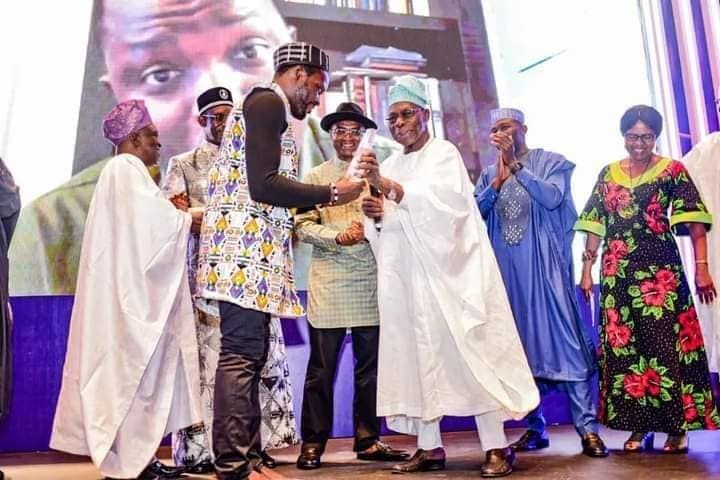
(Su’eddie blogs at http://sueddie.wordpress.com, is @sueddieagema across social media pages and @sueddieofficial on Instagram.)


